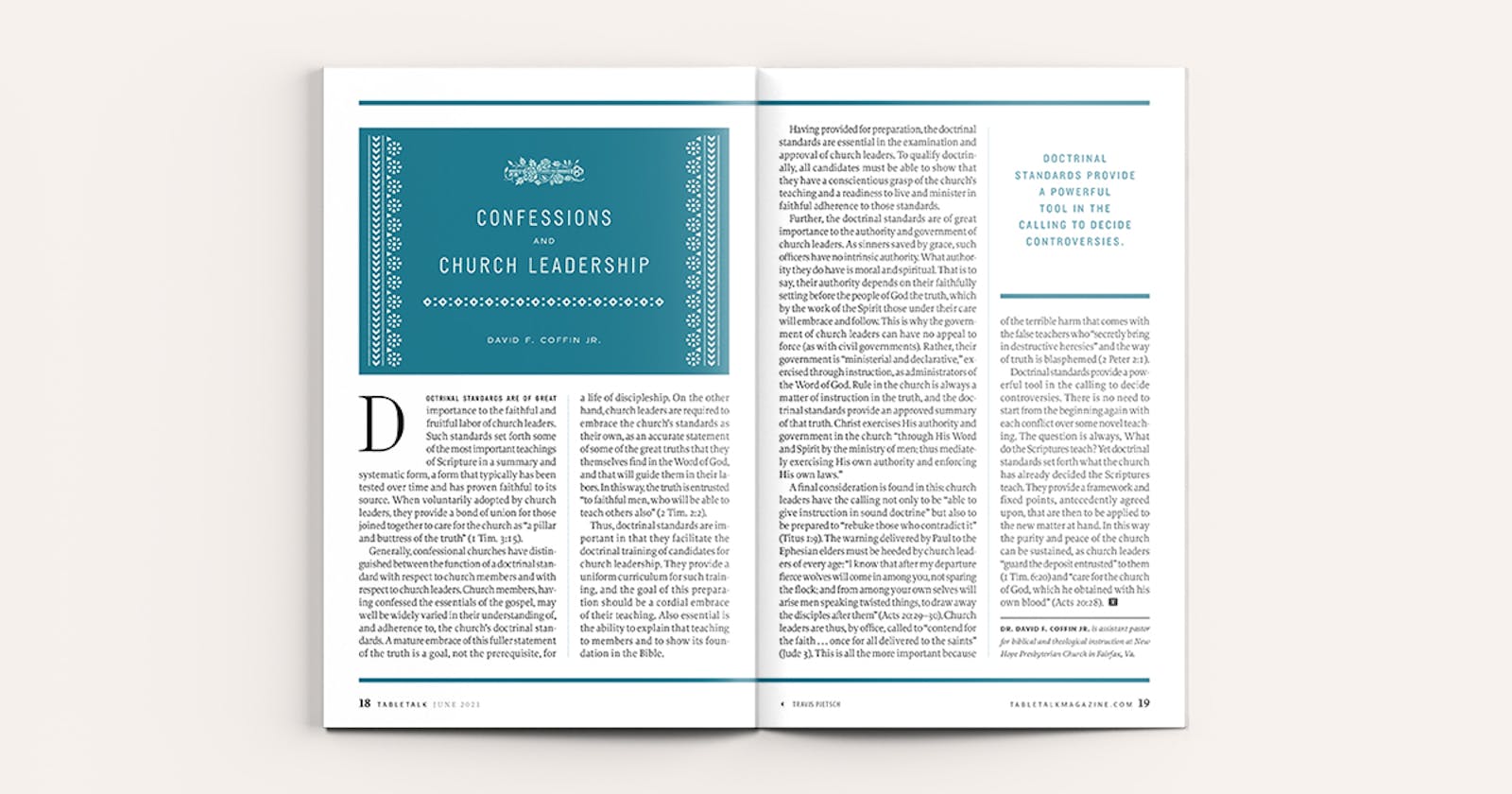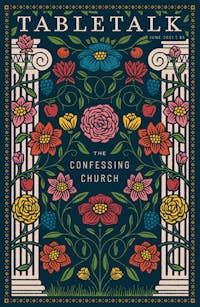
Request your free, three-month trial to Tabletalk magazine. You’ll receive the print issue monthly and gain immediate digital access to decades of archives. This trial is risk-free. No credit card required.
Try Tabletalk NowAlready receive Tabletalk magazine every month?
Verify your email address to gain unlimited access.
Doctrinal standards are of great importance to the faithful and fruitful labor of church leaders. Such standards set forth some of the most important teachings of Scripture in a summary and systematic form, a form that typically has been tested over time and has proven faithful to its source. When voluntarily adopted by church leaders, they provide a bond of union for those joined together to care for the church as “a pillar and buttress of the truth” (1 Tim. 3:15).
Generally, confessional churches have distinguished between the function of a doctrinal standard with respect to church members and with respect to church leaders. Church members, having confessed the essentials of the gospel, may well be widely varied in their understanding of, and adherence to, the church’s doctrinal standards. A mature embrace of this fuller statement of the truth is a goal, not the prerequisite, for a life of discipleship. On the other hand, church leaders are required to embrace the church’s standards as their own, as an accurate statement of some of the great truths that they themselves find in the Word of God, and that will guide them in their labors. In this way, the truth is entrusted “to faithful men, who will be able to teach others also” (2 Tim. 2:2).
Thus, doctrinal standards are important in that they facilitate the doctrinal training of candidates for church leadership. They provide a uniform curriculum for such training, and the goal of this preparation should be a cordial embrace of their teaching. Also essential is the ability to explain that teaching to members and to show its foundation in the Bible.
Having provided for preparation, the doctrinal standards are essential in the examination and approval of church leaders. To qualify doctrinally, all candidates must be able to show that they have a conscientious grasp of the church’s teaching and a readiness to live and minister in faithful adherence to those standards.
Further, the doctrinal standards are of great importance to the authority and government of church leaders. As sinners saved by grace, such officers have no intrinsic authority. What authority they do have is moral and spiritual. That is to say, their authority depends on their faithfully setting before the people of God the truth, which by the work of the Spirit those under their care will embrace and follow. This is why the government of church leaders can have no appeal to force (as with civil governments). Rather, their government is “ministerial and declarative,” exercised through instruction, as administrators of the Word of God. Rule in the church is always a matter of instruction in the truth, and the doctrinal standards provide an approved summary of that truth. Christ exercises His authority and government in the church “through His Word and Spirit by the ministry of men; thus mediately exercising His own authority and enforcing His own laws.”

A final consideration is found in this: church leaders have the calling not only to be “able to give instruction in sound doctrine” but also to be prepared to “rebuke those who contradict it” (Titus 1:9). The warning delivered by Paul to the Ephesian elders must be heeded by church leaders of every age: “I know that after my departure fierce wolves will come in among you, not sparing the flock; and from among your own selves will arise men speaking twisted things, to draw away the disciples after them” (Acts 20:29–30). Church leaders are thus, by office, called to “contend for the faith once for all delivered to the saints” (Jude 3). This is all the more important because of the terrible harm that comes with the false teachers who “secretly bring in destructive heresies” and the way of truth is blasphemed (2 Peter 2:1).
Doctrinal standards provide a powerful tool in the calling to decide controversies. There is no need to start from the beginning again with each conflict over some novel teaching. The question is always, What do the Scriptures teach? Yet doctrinal standards set forth what the church has already decided the Scriptures teach. They provide a framework and fixed points, antecedently agreed upon, that are then to be applied to the new matter at hand. In this way the purity and peace of the church can be sustained, as church leaders “guard the deposit entrusted” to them (1 Tim. 6:20) and “care for the church of God, which he obtained with his own blood” (Acts 20:28).
